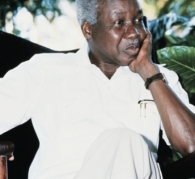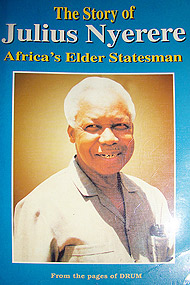Nyerere carried the torch that liberated Africa

The then leaders of the Front Line States (from left) Tanzania’s Julius Kambarage Nyerere, Mozambique’s Samora Moises Machel, Botswana’s Quett Masire, Angola’s Eduardo dos Santos and Zambia’s Kenneth Kaunda spearheaded the decolonisation of Southern Africa
MWALIMU Julius Kambarage Nyerere was the father of Southern African liberation, and one of the founding fathers of the Southern African Development Community. Born in Butiama near Lake Victoria on April 13 1922, when he passed away 15 years ago on October 14 1999, Africans everywhere shared the sense of loss felt by Tanzanians. He was Baba wa taifa, father of the nation, the moving force for the independence of Tanganyika on December 9 1961 and for its unity with Zanzibar on April 26 1964 to create the United Republic of Tanzania.
A charismatic leader of sharp intellect and great personal integrity, he welded…


